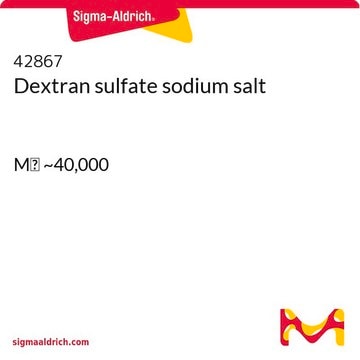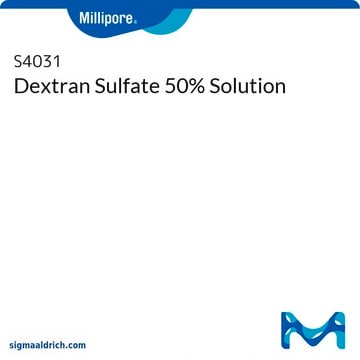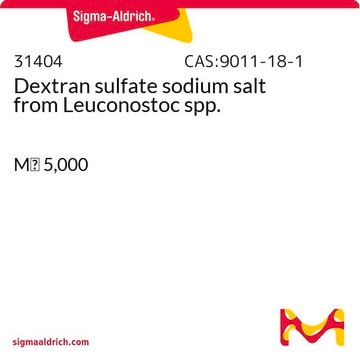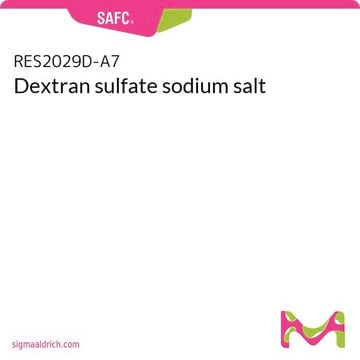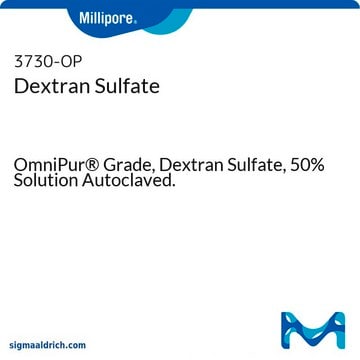68076
Dextran sulfate sodium salt from Leuconostoc spp.
low sulfate content, Mw 3000-6000
About This Item
Recommended Products
form
powder
quality
low sulfate content
mol wt
Mw 3000-6000
composition
Sulfur Content, 8-13%
loss
≤10% loss on drying
solubility
H2O: 0.1 g/mL, clear, colorless to slightly yellow
storage temp.
room temp
Looking for similar products? Visit Product Comparison Guide
General description
Application
Biochem/physiol Actions
Preparation Note
Storage Class
11 - Combustible Solids
wgk_germany
WGK 2
flash_point_f
Not applicable
flash_point_c
Not applicable
Choose from one of the most recent versions:
Certificates of Analysis (COA)
Don't see the Right Version?
If you require a particular version, you can look up a specific certificate by the Lot or Batch number.
Already Own This Product?
Find documentation for the products that you have recently purchased in the Document Library.
Active Filters
Our team of scientists has experience in all areas of research including Life Science, Material Science, Chemical Synthesis, Chromatography, Analytical and many others.
Contact Technical Service
